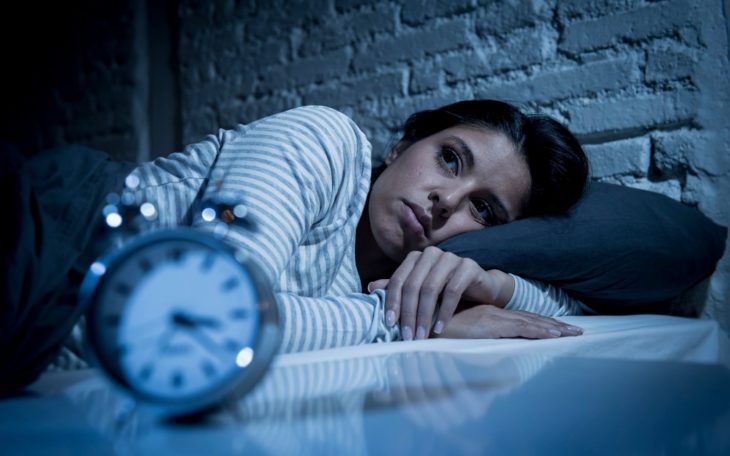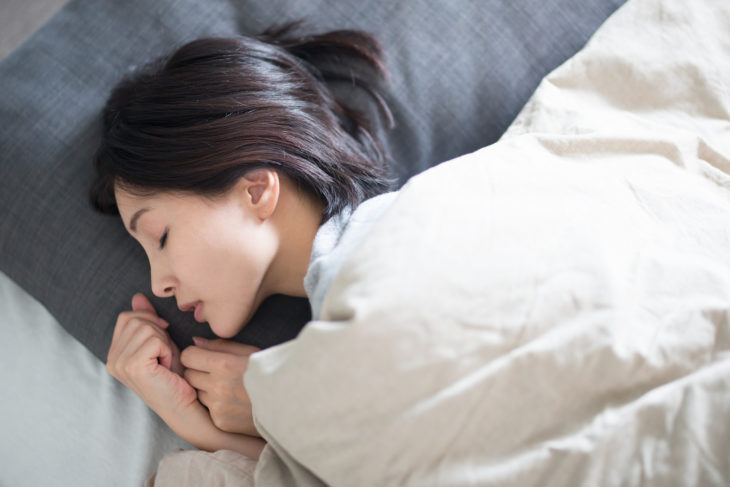Did you know that nearly 70 million US adults suffer from a sleep disorder?
Sleep problems affect more women than men. It was found that women aged 30-60 only sleep an average of 6 hours per night, failing to meet the 7-8 hour recommendation set by public health bodies.
With busy work schedules to family commitments and hectic modern-day lifestyles, catching adequate sleep is an ongoing battle for many women worldwide. Additionally, women often experience sleep changes due to hormonal changes that happen around menopause and the menstrual cycle.
Poor sleep quality can affect every health system, including immune function, muscle function, and cognitive performance. Long-term sleep deprivation can increase your risk of developing a chronic condition.
An umbrella of factors influences the quality of your sleep. Merely taking a medicinal sleeping pill or mega-dosing on artificial melatonin can be tempting, but they often cause an array of side effects. Although resorting to pills may fix the solution short-term, it is usually doing more harm than good.
Instead of relying on medication to help you sleep, there are a variety of natural sleep remedies and tips to regulate your circadian rhythm long-term. ou also want to make sure you sleep on a quality mattress. Sites like Slumber Search can help you find the best mattress for your specific needs.
Contents
1. Boost Melatonin Levels Naturally before Sleep

Source: Medkore Preventive Medicine
Melatonin is the primary hormone produced by the body to regulate our sleep. Artificial melatonin at large doses has been shown to increase next-day grogginess and tiredness. It may also lead to dependence, which would disrupt the body’s natural production of melatonin if used long-term.
Instead, opt for a quality supplement that supports your natural production of melatonin by using ingredients such as magnesium, Montmorency cherries, and tryptophan. Magnesium can help calm and relax your muscles and nerves to wind you down before bed. Tryptophan is an amino-acid required for the production of melatonin.
According to Performance Lab, Montmorency cherry is packed with nutrients to promote sleep and natural melatonin production. Not only will Montmorency cherries support your natural sleep rhythms, but they are also packed with anti-inflammatory compounds to enhance overall health and performance.
2. Reduce Screen Time

Source: The Sleep Doctor
A staggering 90% of adults use an electronic device before bed. Unfortunately, most people don’t pay attention to the impact this has on their sleep.
Exposure to blue light from electronic devices before bed is correlated with disrupted sleep due to a multitude of reasons. Blue light affects the body’s natural sleep rhythm by directly impeding the production of melatonin. When the body produces less melatonin, your brain remains alert, making it much harder to sleep.
Aim to avoid any electronic device at least an hour before your bedtime. There are many things you can do instead to wind you down for a night of blissful sleep.
3. Avoid Long Naps

Source: Tidy Tightwads
A nice, long nap after a busy day at work can be very tempting, but at what cost? Daytime napping for longer than 20 minutes can impact your natural sleep cycle, causing your body to become more alert at night instead of winding down to sleep.
If you really must nap, make sure it is no longer than 20 minutes to prevent your body from entering the deep sleep phase. If you nap for longer, you may wake up feeling groggy and less alert. Additionally, make sure you do not nap close to your bedtime, as napping at the wrong time of day can be counterproductive.
4. Cut the Caffeine

Source: Big World Tale
It all starts with a cup of coffee. Or two. Or three. While coffee in small doses can support productivity. High caffeine intake may contribute to sleep deprivation.
Caffeine is a potent stimulant, which can delay the timing of your body clock and disrupt your natural sleep pattern. Additionally, high caffeine intake can also lead to physical dependence, causing withdrawal symptoms such as headaches, fatigue, and muscle pain.
Aim to drink your last caffeinated beverage at around noon-time, and opt for non-caffeinated herbal teas and water for the rest of the day. If you are struggling to go cold-turkey, cut back your caffeinated beverages gradually, and replace them with water. This will help wean you off caffeine to improve your sleep naturally without the withdrawal symptoms.
5. Set a Sleep Routine

Source: The Telegraph
Sticking to a sleep schedule with a staple bedtime and wake up time is key to regulating your body clock long-term. Creating a sleep routine will program your brain to sleep at a certain hour every day.
Eventually, your brain will naturally wake up at the same time every day, feeling refreshed and ready for another day of peak performance. Although it may be tempting to sleep-in on weekends, forcing yourself to sleep for longer may impact your body clock and throw you off the routine.
6. Exercise During the Day

Source: Remedies For Me
Physical activity during the day has been shown to improve sleep quality and duration significantly. In particular, physical activity increases the time you spend in deep sleep while reducing stress and anxiety that may be contributing to the sleep deprivation.
Not only is staying active beneficial for sleep, but it also contributes to a plethora of health benefits.
Not sure where to start? You don’t need to run a full marathon every day to improve your sleep. Moderate cardiovascular exercise is recommended to improve overall health and sleep quality. Find something you enjoy and get moving for at least 30 minutes 5 times a week.
7. Eat healthily

Source: Sentinel Assam
Your diet has a significant impact on your sleep quality. Consuming a high-sugar food can cause spikes in your energy levels, disrupting your sleep and body clock.
Avoid consuming heavy meals before bed to prevent digestive problems and sleep disturbances.
Eat a diet rich in fruits, vegetables, lean protein sources, and complex carbohydrates. Foods rich in tryptophan, such as milk, brown rice, oats, and turkey, can promote your body’s natural production of melatonin to improve your sleep quality.
Bottom line

Source: The Doctor Weighs In
Sleep is a crucial requirement for optimal health. If you are experiencing symptoms of sleep deprivation, it is best to avoid artificial sleep aids and opt for lifestyle and dietary changes to support your natural circadian rhythm.
Taking a supplement with Montmorency cherry, increasing physical activity, reducing caffeine intake, and setting a sleep routine can be the trick to encouraging deep, unbroken sleep every night.
